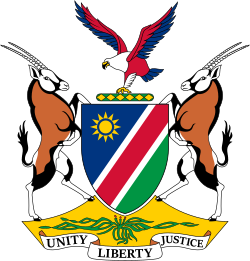This article relies largely or entirely on a single source .(October 2025) |
 |
|---|
The Namibia Democratic Party [1] was a political party in Namibia. The party was founded in Vaalgras, 1975. It was led by Emil Appolus. The party had its roots in the South West Africa United National Independence Organisation (SWAUNIO).